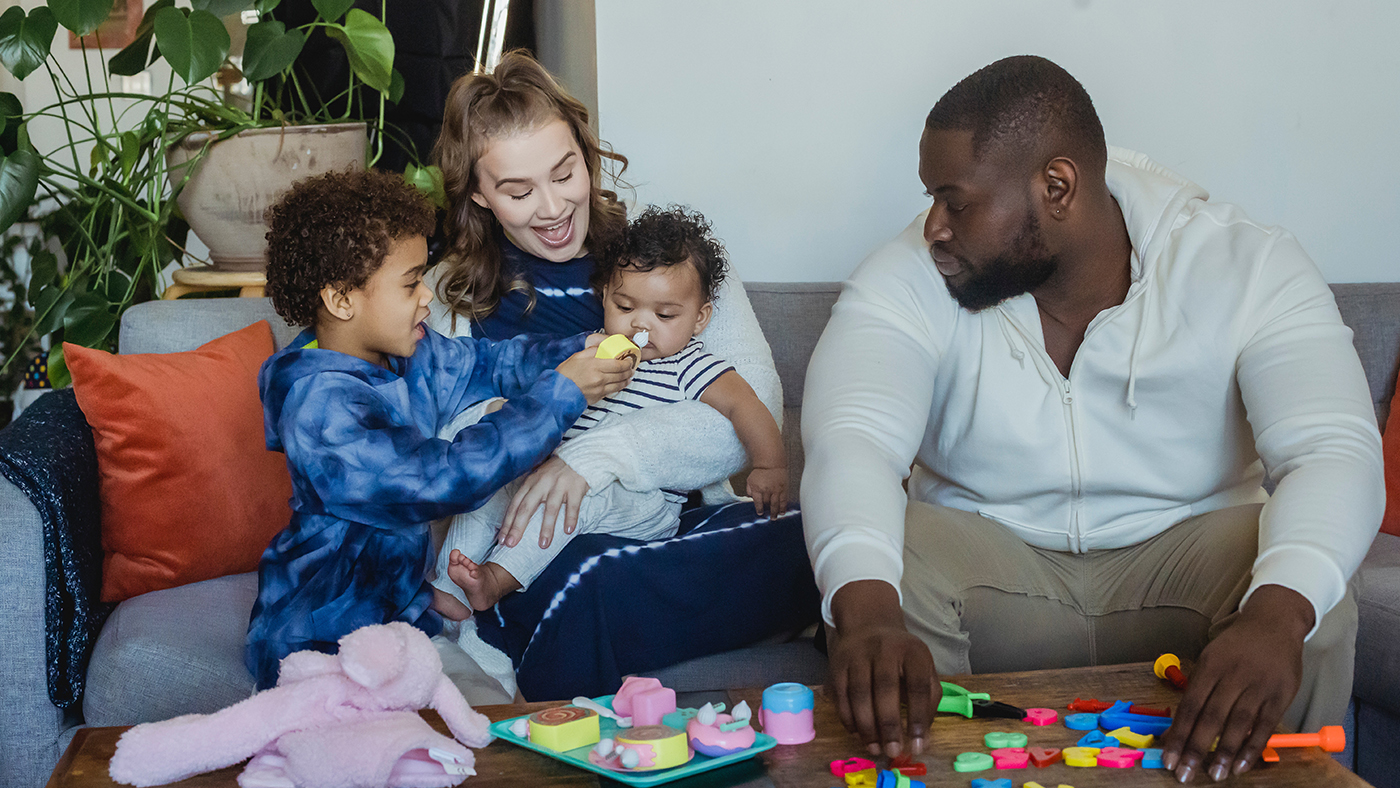How your baby picks up on language around them

Your baby’s hearing developed before they were born and they will have been able to hear muffled conversations in the womb.[1] You'll have seen them responding when you speak, perhaps pausing for a moment or making sounds. Now, you might notice that your baby listens to conversations when the people around them talk – again, they might be quiet for a moment or respond with movement.
Listening and learning about sounds
Your baby's interest in listening to people talk has been there from birth, and research has found that babies prefer listening to human voices over other sounds.[2]
Incredibly, your baby was born with the ability to distinguish all the sounds used in every language! Although they will gradually lose this ability, they will be able to distinguish the sounds used in the language or languages that they will speak.[1]
Connecting what they hear with language
Your baby will learn about the speech sounds used in the languages that they will speak by listening to the people around them. They will gradually make connections between the part of their brain that processes what they hear, and the parts of the brain linked to language. When they have heard sounds many times, these connections will be strengthened and different clusters of cells in the brain (neurons) will respond to different speech sounds.[2]
Your baby has already picked up on patterns of speech
Your baby has started to learn about the patterns and rhythms of speech and they can identify where each word begins and ends when listening to people talking.[2] When we listen to someone speaking in a language that we understand, we are able to identify where the separate words begin and end. When your baby listens to people talking, they will be able to identify the individual words in what they hear, although they might not understand the meaning of the words yet.[3]
Listening and identifying individual words will support your baby to understand the meaning of words, as they hear the same words many times, they will begin to understand what these mean.
They will take in how people speak to each other, beyond just words
Listening to people talking, and being spoken to, helps your baby to understand how conversations work. They will learn not only about sounds and words used when talking, but also about how people speak to each other. They will notice tone of voice, gesture and turn-taking in conversations.
Language and social development are closely linked, as your baby begins to understand other people and to seek and respond in different ways to interactions. They are learning both about what people say and how people have conversations.
You'll hear more sounds as your baby absorbs tones and rhythm of speech
As your baby continues to listen to the people around them, they'll gradually understand even more about how people speak to each other. They'll begin to make more sounds and explore the tones and rhythms of speech that they have heard in the sounds that they make themselves.
References:
[1] Addyman, C (2020) The laughing baby: The extraordinary science behind what makes babies happy. London: Unbound.
[2] Owens, R.E (2016) Language Development: An introduction (9th Ed.) London: Person.
[3] Byrne, E., (2021) How to build a human: What science knows about childhood. London: Souvenir Press.